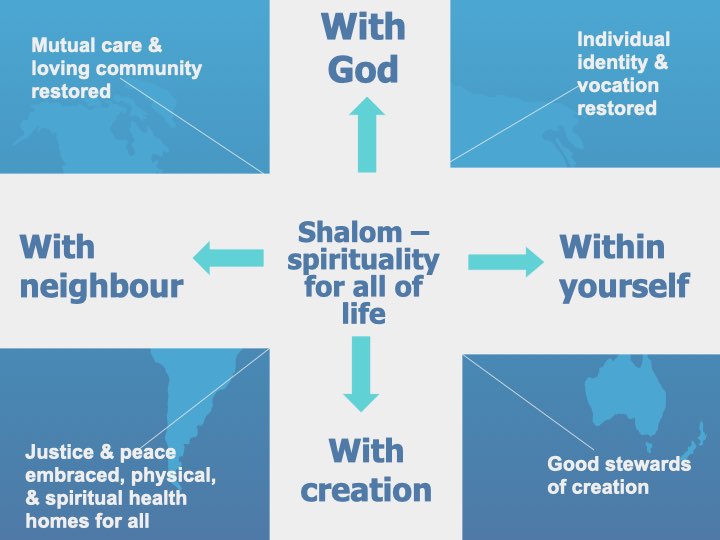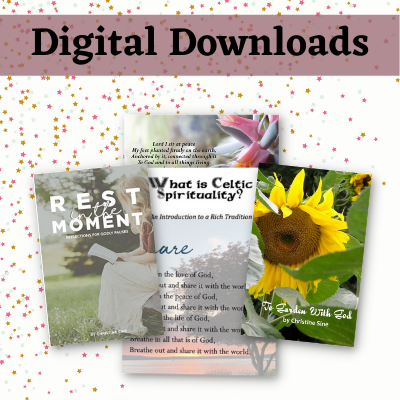Everywhere I turn at the moment people are talking about grief and the work that needs to be done to enable us to establish a “new normal” in the reality that confronts us. As I think about this I am reminded of the Wise Men whose arrival in Jesus’ life we celebrated last week. They were warned by a dream to go back home another way and it seems to me that 2022 is beckoning us to do the same. We too are being told to go back by another way, a way that I feel lies through the valley of Baka (the valley of weeping) but it is also a valley that in Psalm 84 God promises can be made into a place of springs.
My current read – The Wild Edge of Sorrow – reminds me that grief is sacred. It calls us back to deeper ground, to the roots of our life. If we treat it with reverence, recognizing the important work it yields in our lives it becomes a place of learning and strengthening and renewal.
COVID made us aware of the grief resident in our souls, the grief we ignored for a long time that will no longer remain silent. There is the grief of our abuse of the earth and the amazing brilliance of a world without pollution that we caught a glimpse of again in the months of lockdown. There is the grief of our abuse of neighbours who look and think differently from us. There is the grief of the abuse of our bodies that cry out for the rest and refreshment that many of us found over the last couple of years. I think there is also the grief of our abuse of God who receives only a cursory acknowledgment of our commitment.
In the midst of this grief, I hear people calling for renewed commitment to a rule of life; a rhythm of life with love of God at the centre. I thought it was a good time for me to challenge all of us (including myself) to think about this and how we develop and live out such a rule.
Discerning a Shared Rhythm of Life Together
I see rules and rhythms of life being adopted both by individuals wanting a more intentional structure for their faith practices and by churches and communities encouraging their leadership and staff to deeper levels of shared commitment.
Most of us, however, still tend to associate a rule of life with monastic or neo-monastic communities that are on the fringes of church and society. We don’t really understand what value a commitment to a common rhythm or rule could possibly have especially in the context of leadership. Some of us think it sounds a bit legalistic. I find however that a rule of life is very freeing. It reminds us of who we are, what God calls us to be and do, and how God calls us to live. It can provide wonderful guidelines that enable us to come together and stay together in unity.
What is a Rule of Life?
A rule of life is a set of practices we commit to that enable us to continue growing closer to God, to each other, to God’s good creation and to the mission God calls us to. In the words of St Benedict, it is “simply a handbook to make the radical demands of the gospel a practical reality in daily life.”
Celtic monasteries centred around the formation of communities in which members followed a certain lifestyle and maintained a regular discipline of prayer and worship. Monks mixed manual, intellectual and spiritual labour, maintaining a balance between engagement in the world and withdrawal from it. These communities provided a focus for the life of the surrounding non-monastic community whose members made different forms of commitment and adhered to a variety of rules that acknowledged and affirmed their gifts and ministry.
A number of contemporary churches and organizations have rediscovered the value of a rhythm of life. Ian Mobsby in his book The Becoming of G_d explains: “As people encounter Christians living out profound expressions of the faith through God’s love, they encounter the depth of a loving Christian community and experience God as their ‘ground of being’ through worship, mission and community… It is in these participative and loving Christian communities that people can encounter the reality of the Christian story of the Holy Trinity not as a hypothetical truth but as a profound reality clueing us in to how we should live.”
A Rule of Life Rooted in Shalom

I spent a lot of time researching shalom when I wrote Shalom and the Wholeness of God back in 2011. Randy Woodley’s indigenous view of shalom expressed in his book Shalom and the Community of Creation was particularly impactful. The above diagram became not only the centre of my beliefs but also the centre for my development of a rule of life for myself and the community in which we live. It’s time for me to revisit this. I am increasingly convinced that we should encourage ourselves and others to develop a rhythm of life based on God’s desire for wholeness – in which prayer intertwines through every aspect of life so that we can keep God and God’s shalomic purposes at the centre of all we are and do.
The current turmoil that bubbles in so many ways around us encourages complacency in those who believe we are headed for an apocalyptic end to the world. For those of us who believe this is a sign of God’s desire for renewal and restoration to the wholeness of the original creation, it is a wake-up call to reevaluate our lives.
As a result, we want to encourage followers of Jesus to live into:
A redeemed (restored) relationship to God, seeking intimacy with God through:
-
- Regular individual prayer & scripture study
- Regular corporate worship balanced with times of listening in solitude – (meditative and contemplative prayer)
- Repentance and confession of sins both personal and societal
- Commitment to personal healing of wounds from the past that create barriers between us and God
- Development of disciplines that encourage a balance between spiritual and secular, community and solitude, work and rest. “Learn the unforced rhythms of grace” (Matt 11:28 The Message)
A redeemed (restored) relationship to God’s worldwide community through:
-
- Intentionally sharing life with others – recognizing that God comes to us in community and that community is essential for Christian faith, actively seeking support and accountability
- Hospitality and celebration – “let everyone be received as Christ” celebrating the in-breaking of God’s resurrection world with others
- Simple living – uncluttering our lives to focus on participating in God’s resurrection life in both local and global community – give me neither poverty nor riches (Prov 30)
- Solidarity with the marginalized – “act justly, love mercy” (Micah 6:8)
- Recognizing all we have belongs to God, becoming whole-life stewards who practice generosity that encourages mutual care – “where your treasure is there your heart will be also” (Matt 6:21)
- Humbly examining the ways culture and history have shaped our values, discarding those that are counter to God’s kingdom values and embracing and celebrating those that reflect God’s kingdom values
- Service in the broader community – not looking to your own interests but each of you to the interests of others (Phil 2:4)
A redeemed relationship with God’s creation through
- Responsible ecological stewardship – responding to the fact that “the earth is the Lord’s & the fullness thereof.” (Psalm 24:1)
- Connection to the God revealed through creation
- Enjoyment of God’s creation and creatures
- A commitment to “live lightly on the earth” and do what we can to restore the polluted and devastated world in which we live
NOTE: As an Amazon affiliate I receive a small amount for purchases made through appropriate links. Thank you for supporting Godspace in this way.
 Did you know? We have many resources available for downloads–from books to retreats, cards and coloring pages, and much more–including free resources! Check out our shop here for all the fun!
Did you know? We have many resources available for downloads–from books to retreats, cards and coloring pages, and much more–including free resources! Check out our shop here for all the fun!
